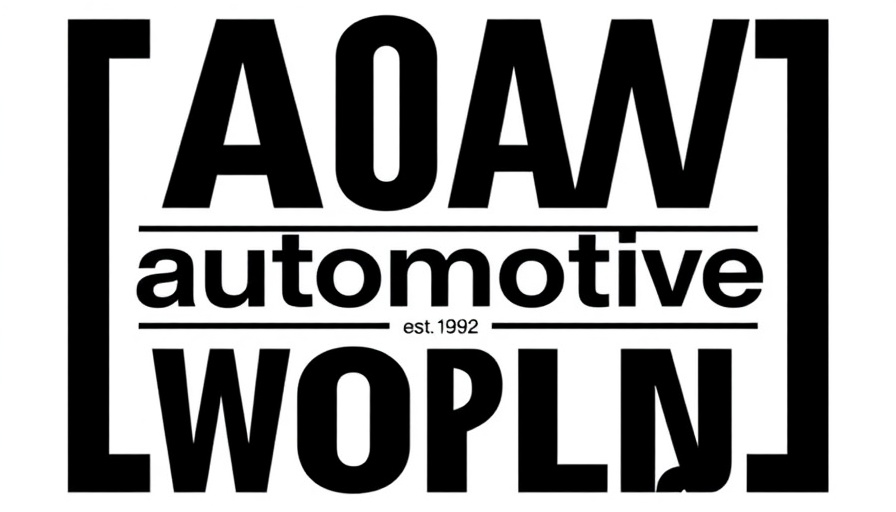
The Rise of Electric Commercial Vehicles: A Game Changer for Logistics
The emergence of electric vehicles (EVs) is revolutionizing not just the consumer market but also the commercial sector. Companies like Mullen Automotive are at the forefront, driving change in the logistics industry through innovative products such as the Mullen ONE Class 1 cargo van. Recently, Mullen announced a significant commercial EV order from Global Expert Shipping, a licensed freight forwarding company based in Glendale, California. This order marks a notable shift as freight companies seek sustainable transportation solutions to tackle carbon emissions.
Why Global Expert Chose Mullen EVs
Global Expert Shipping has recognized the pressing need for sustainability in their operations. By choosing the Mullen ONE electric cargo van, they are set to minimize their environmental impact significantly, aligning the company's logistics needs with an eco-friendly approach. This decision coincides with the broader trend of logistics firms investing in green technologies to enhance their operational efficiency while adhering to regulatory frameworks designed to curb pollution.
Advantages of Electric Vehicles for the Logistics Sector
Transitioning to electric vehicles provides multiple benefits for companies like Global Expert. One of the primary advantages is the substantial reduction in total cost of ownership (TCO). As highlighted by David Michery, CEO of Mullen, the upfront costs of electric vans are increasingly offset by savings in operational expenses, such as fuel and maintenance. Additionally, compliance with environmental regulations gives companies a competitive edge, creating a win-win scenario.
Current Market Trends in Eco-Friendly Transportation
The trend towards electric commercial vehicles is not isolated to Mullen or Global Expert. A growing number of businesses are recognizing the long-term benefits of reducing their carbon footprints. Research indicates that over 70% of logistics companies are planning to integrate electric vehicles into their fleets over the next decade. These shifts are powered by governmental incentives and an increasingly environmentally-conscious market that expects companies to act responsibly.
Challenges Ahead for EV Adoption in Freight
Despite the promising outlook, challenges remain for widespread adoption of electric vehicles in the freight sector. The initial cost barriers persist, and not all regions have the necessary EV infrastructure, such as charging stations, to support electric trucks and vans. Moreover, upfront investments must be balanced against traditional transport methods, which can sway decision-making in logistics firms. Understanding these challenges is crucial as dealers tailor their approaches to better serve their clients.
Conclusion: A Sustainable Path Forward
The order placed by Global Expert for the Mullen ONE is a clear indication of the logistics industry's commitment to sustainable practices. As dealership owners and GMs, understanding these trends is essential in helping your clients navigate the evolving landscape of electric vehicles. To remain competitive, dealerships should focus on providing practical insights regarding sales strategies for commercial EVs, which are set to redefine the automotive market.
 Add Row
Add Row  Add
Add 

 Add Row
Add Row  Add Element
Add Element 




Write A Comment